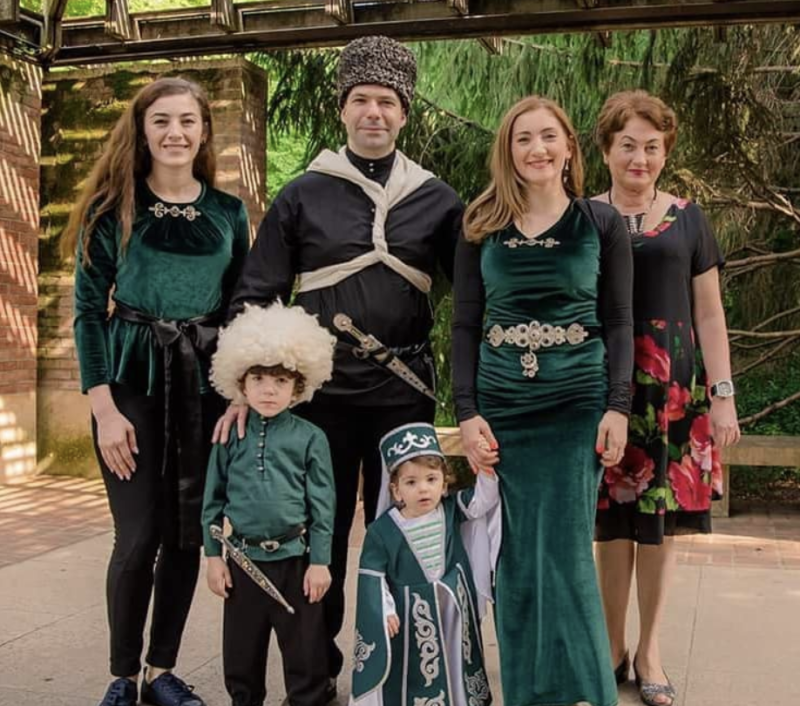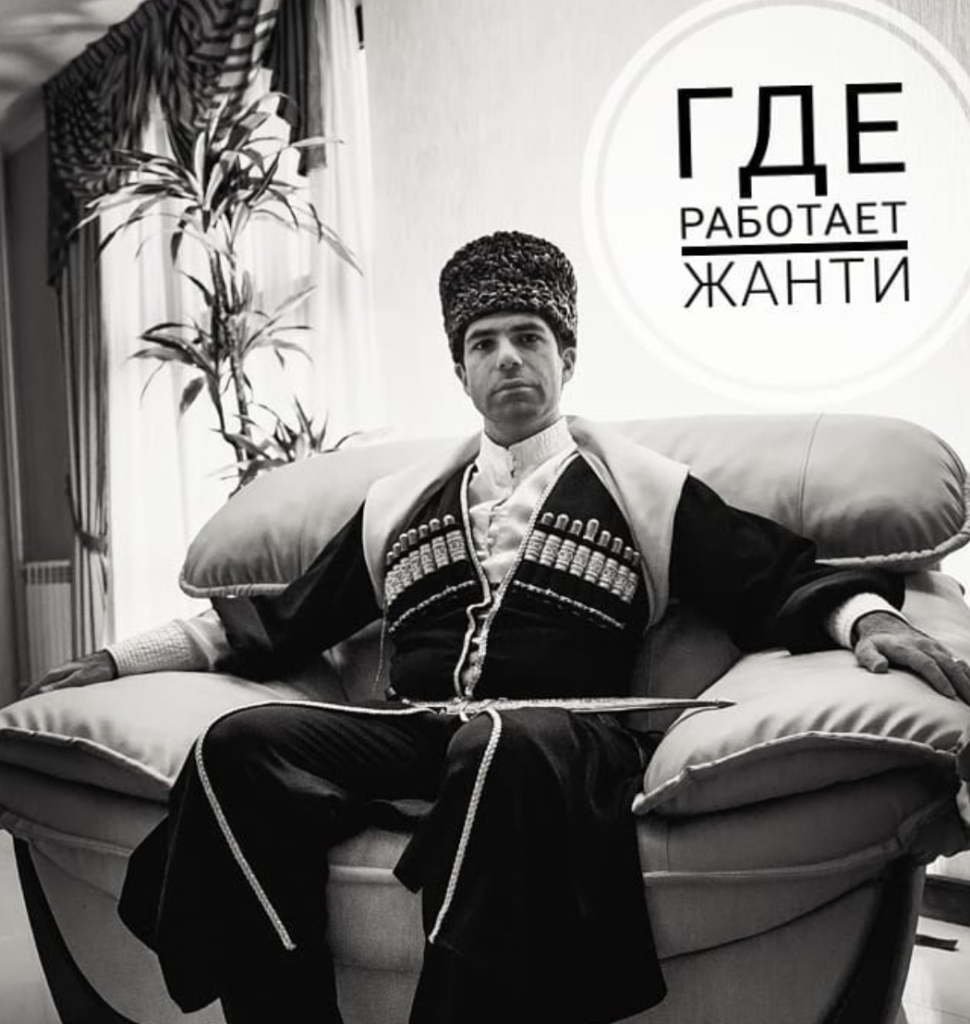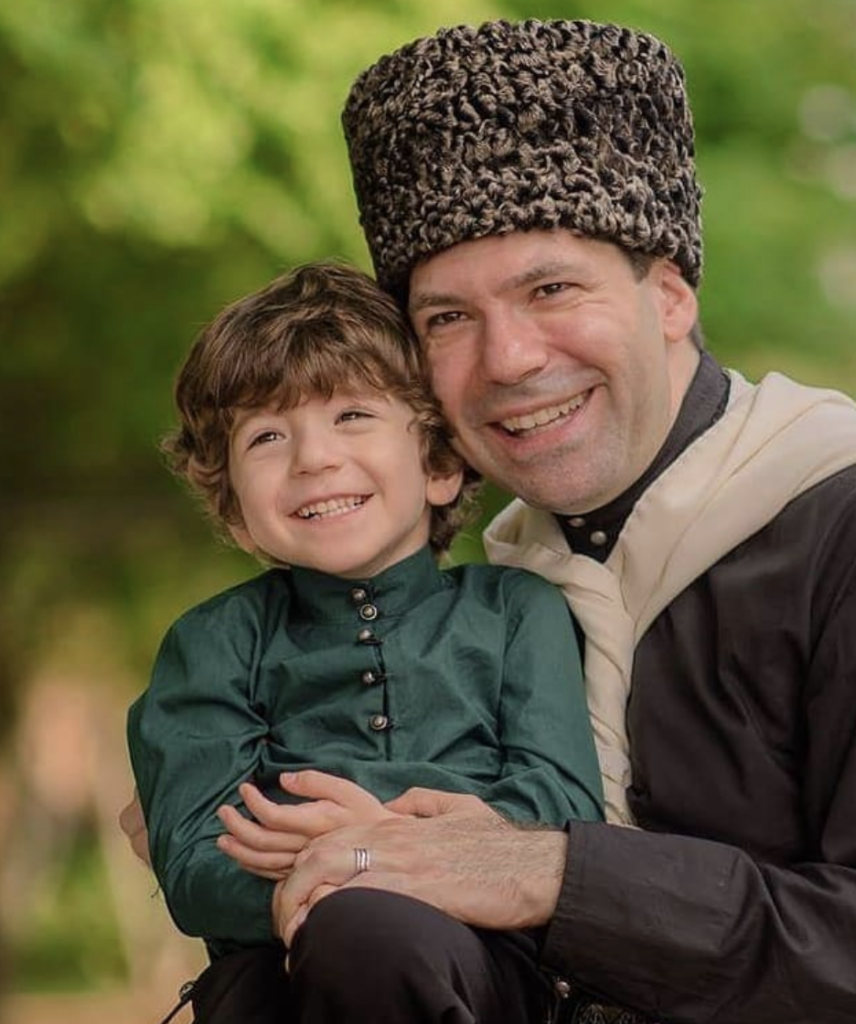How Languages Help You Find Your Place in the World
People are often taken aback by me when I travel, especially in Russia. I speak Circassian, Russian, and English to varying degrees of fluency. When I speak to people in my travels, many times, people think I was born speaking their native languages. For me, that’s the goal. In each of those interactions, I find a sense of identity through language learning as I connect with native speakers throughout my journeys.
Walking down the street in Nalchik, a little boy turns to me as I’m recording notes on my phone in English. He turns to his father as says, “Papa, Papa, that man is a foreigner. A foreigner”
The father answers in Circassian, “Sometimes foreigners come here to see the city.”
I turned around to the boy, and in Russian, I said, “I’m not a foreigner. I’m a Circassian.” I turn to the boy’s father, laughing, and in Circassian, I say, “ I was born in the US, but I’m Circassian!” The daughter, excited, says, “he speaks three languages!”
As I slip in and out of these languages, it’s a bit of a head-trip. They see me as one of their own. And as someone who’s never really felt like he belonged anywhere, these conversations give me a level of connection I’ve struggled to find my whole life. Even if it’s only temporary.
Even better, there’s a look of bewilderment on their faces when they find out I’m self-taught. They’re shocked to discover a regional accent and not one of a foreigner. And they often tell me excitedly that they never thought that a non-native speaker could speak like this…
Why People Learn Languages
Behind every attempt to learn a language, there’s always a love affair. That affair might be with a speaker of that language. It may be with the culture that the language represents. It could be with the idea of becoming a better version of one’s self. Either way, it’s an unfulfilled love affair until you achieve the goal of mastering that language.
Learning Language for Utility
Many people learn languages for utilitarian reasons. They immigrate to work or they get married, for instance. They need to learn the language. It’s required. They’re in a new area or around new people and learning a new language will make their lives easier. It’ll give them better access to economical advantages. And it can help them blend in like a local.
Identity Through Language Learning
Others learn languages to connect with a part of who they are. They want to recapture a part of themselves (their identity through language learning) because they feel it has been lost over the ages. This could be from a historical or ancestral perspective, or it could be from cultural needs. Their mission to learn a language is to reclaim that part of themselves and finally become who they see themselves as.
Learning Language to Connect with Others
But there’s also a third category of language-learners: those who learn languages to belong. These people, usually polyglots, are searching for their identity through language learning. They often don’t feel comfortable where they are in life. And learning languages helps opens the doors so they can connect with others.
It’s similar to how people join online gaming communities. They’re looking to reach out to people and form bonds in a way they couldn’t in ordinary life. And just like gaming is a form of expression to these people, languages (perhaps one of the truest forms of expression) help them better express who they really are.

For polyglots, language functions as a kind of wardrobe. They cycle through various languages, shifting between different cultures. And as they move through different languages, it’s as though they’re shifting outfits, finding the right attire to match the occasion.
Identity Defined Through Language-Learning
My desire to learn and speak languages fluently is a mix of all three. Like so many polyglots, I expressed my identity through my language learning. But at the same time, there’s a mission behind my desire to master language-learning: my native language is dying.
As the child of Syrian refugees, I grew up as an outsider in the U.S. My parents were always quick to point out wherever we were that we were different from the locals. They were American. We were not.

Still, America was my home growing up. I felt as American as anyone else. But I was still an outsider. My culture, my family, even my religion separated me from those around me. At a young age, I was denied a portion of my American identity. But as a Circassian living away from home, I was denied a portion of my ethnic identity. I was a coin that always seemed to be landing the wrong side up.
My desire to master my ethnic language was an attempt to connect back to my sense of identity through language learning. But there was also a love for my culture and my family that inspired me to learn more. There was a hole in my heart and soul that had been there my whole life. I realized I wasn’t complete, and would never be complete unless I learned my ethnic language.
Multilingual vs. Polyglot
I would consider myself someone who is multilingual. My language learning journey started off as an attempt to find my identity through language learning. And after a while, it grew into a love affair full of adventure and exploration as I tried to put together the materials I needed to teach myself this dying language. Along the way, I stumbled into the role of a polyglot, learning a variety of languages in order to get closer to my ethnic language.
But at some point, I pulled away from what it means to be a polyglot.
Polyglots learn languages as an interest or passion. There’s a love of learning languages for the sake of learning languages. And that’s a wonderful, powerful passion to have. But my view differs.
I learn and use multiple languages because it’s an everyday part of my life. I use Turkish, German, Russian, Arabic and Circassian to communicate with my family and friends. I know people who speak these languages and traveling around, connecting with them, and working in these languages has led me to mastery.

The Need to Preserve Languages
Language preservation is at the core of everything I do. It is the reason I started learning Circassian in the first place. When I was 30, I realized that I did not know my native language. I also knew that with every day, more of my culture and history was lost to me. So, I set off to teach myself the language. Along the way, I learned that there were very few resources available.
For over a decade, I hunted down and built my own language-learning materials so that I could teach myself Circassian. My journey quickly grew complicated. Early on, I discovered that to learn Circassian, I would need to learn Russian, Turkish, and Arabic as well. It was necessary to connect with my culture. I couldn’t fully connect with my culture without an understanding of all these languages.
But it was more complicated than that.
I had struggled as a language learner in school. I spent years studying languages only to walk away remembering nothing. So, I knew that if I was really going to preserve Circassian, I would need to learn how to learn languages. I couldn’t afford to waste time.
The Endless Battle of Protecting Endangered Languages

Every two weeks, a language disappears forever. And when it goes, it takes culture, stories, and a piece of humanity with it. When I decided to learn Circassian, it was to pull my language back from the brink, to keep it from becoming another statistic.
I honestly don’t know if I’m fighting a losing battle or extending the life of something I love. But my goal is to turn the tide. If I can keep my language alive, then all of my efforts to teach myself the language and help others learn languages will have been worth it. Still, I don’t feel like I have an option here. I have to keep struggling, keep pushing to save Circassian from disappearing beyond history.
It’s like a salmon returning to his birthplace, swimming against the tide because he’s doing his part to extend the life of his species. Fruitless. Nihilistic. But Necessary.
Teaching Others the Power of Language-Learning
In the end, I managed to reach fluency and develop a program for teaching others Circassian. After all, a language can’t survive if people don’t embrace it. And they won’t embrace it if they struggle to learn or struggle to find the materials they need to learn it.
My goal is to help other Circassians learn our ethnic language as well. What started off as a personal desire to connect to my identity through language learning turned into a mission to help save my native language. I created lesson plans, found and crafted my own materials, and designed effective language learning methods to help others learn the language.
Over the years, I’ve been successful. I’ve helped thousands of people learn languages. But, there’s still work to be done. And like that salmon, I continue to swim forward, even if the journey may be pointless.

Living Life as a Language-Learner
The Circassian language is not alone in its struggles to survive. Take, for example, the case of the Irish language. The biggest obstacle facing the Irish in their attempts to preserve their ethnic language is themselves. Every year, the government spends a ton of money on preserving Irish. Students spend 13 years learning a new language. But then still leave school not knowing the language.
Many of the Irish leave school thinking it’s a waste of time and money. They see it as a language of simpletons, farmers, the older generations. As a result, the people have turned against this notion of language preservation. They’ve turned against their ethnic language, and as a result, part of who they are. And they think that their better off spending their resources elsewhere.
My experiences have taught me that I need to live my life as an example. My family and I value the power of language. Circassian only has a small number of speakers. It is by no means a language of business. But still, it is the language of our people.
My goal is to live a life that shows Circassian can exist in a modern, professional world. I want to show people that minority/endangered languages are useful. And I hope that my example can show that the world that these languages do matter, inspiring others to follow. And so, I push forward, showing that even professional families take the time to learn and use their ethnic languages at home, even if its one spoken by a small minority.
Why Learning a Language Matters

In those moments when I travel and speak to other Circassians, and there’s that sense of recognition and bewilderment, I find the motivation I need to continue doing what I do. Even if it does feel like swimming upstream.
For those families and my own, the need to communicate in our native tongue exists and will continue to exist as long as we make it a point to recognize the value in preserving and using those languages.
Speaking multiple languages connects people in ways that speaking only one prevents. Yes, it can provide economic and utility value, but it goes deeper than that. It gives people a chance to step outside themselves and reach people in a new way, but it also gives them a chance to explore deep inside their souls and connect with a part of themselves.
In the end, learning languages may be a love affair, but it doesn’t mean it needs to end in heartbreak.







